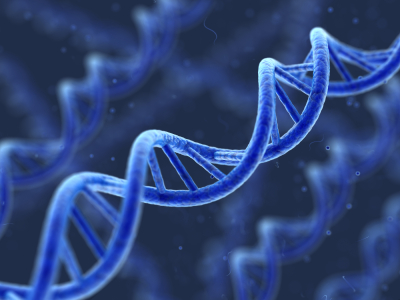At issue is ability of biotech companies to hold patents on genes that might be used in clinical laboratory testing
Patents involving human genes have always been controversial among pathologists and clinical laboratory managers. This is one reason why many in the medical laboratory testing industry are following the progress of the well-publicized lawsuit that challenged certain patents involving human genes that are held by Myriad Genetics, Inc. (Myriad), of Salt Lake City, Utah.
In the trial, which was conducted last year, a federal judge ruled against Myriad Genetics. The company filed an appeal and, on April 4th, the United States Court of Appeals for the Federal Circuit (Court of Appeals) heard oral arguments in the case of Association of Molecular Pathology (AMP) (plaintiffs) versus United States Patent and Trademark Office (USPTO) (defendants). This lawsuit was originally filed on March 29th, 2010, in the United States District Court Southern District of New York (District Court).

The lawsuit was brought by the American Civil Liberties Union (ACLU), with several other parties, including AMP. The plaintiffs challenged the validity of certain patents held by Myriad Genetics, Inc. (NASDAQ:MYGN) involving the BRCA 1 and BRCA 2 genes that play a role in certain breast and ovarian cancers.
At stake in this lawsuit is whether human genes can be patented. Should the Court of Appeals judges issue a final ruling that upholds the trial judge’s finding, there would be substantial consequences to the biotechnology industry and how genetic technologies are used in clinical diagnostics.
The “Nature versus Nurture” Debate Can Affect Medical Laboratory Testing
In March, 2010, the ACLU, charged that genes are “products of nature” and therefore are “discoveries” and not “inventions” and, thus, cannot be patented under the “utility” requirement of 35 U.S.C. 101 of the U.S. patent laws.
In what Newsweek dubbed a “surprise ruling,” the District Court ruled in favor of the plaintiffs and rendered Myriad’s patents on the BRCA genes invalid. (See Dark Daily, “Federal Judge Invalidates Myriad’s Patents for BRCA Genes.”)
However, in 2001, the USPTO published a revision to 35 U.S.C. 101 in Federal Register/ Vol. 66, No. 4 in which it stated:
“When Congress enacted the patent statutes, it specifically authorized issuing a patent to a person who ‘invents or discovers’ a new and useful composition of matter, among other things. The pertinent statute is 35 U.S.C. 101, which reads: ‘Whoever invents or discovers any new and useful process, machine, manufacture, or composition of matter, or any new and useful improvement thereof, may obtain a patent therefore, subject to the conditions and requirements of this title.’
“Thus, an inventor’s discovery of a gene can be the basis for a patent on the genetic composition isolated from its natural state and processed through purifying steps that separate the gene from other molecules naturally associated with it.
“If a patent application discloses only nucleic acid molecular structure for a newly discovered gene, and no utility for the claimed isolated gene, the claimed invention is not patentable. But when the inventor also discloses how to use the purified gene isolated from its natural state, the application satisfies the ‘utility’ requirement. That is, where the application discloses a specific, substantial, and credible utility for the claimed isolated and purified gene, the isolated and purified gene composition may be patentable.”
Therein lay grounds for appeal. The Court of Appeals judges will determine whether the genes Myriad isolated from their natural environment fulfill the “utility” requirement, and if so, Myriad’s patents may be restored.
The ruling would also set precedent, and enable future genes to be patented as well, so long as they fulfill the “utility” requirement.
U.S. Department of Justice Gets Involved
However, in another blow to the defendants, the U.S. Department of Justice, in late October of last year, filed a brief that argued identifying a specific DNA sequence, and then isolating it from its natural surroundings, is akin to locating coal in the ground and removing it.
“Common sense would suggest that a product of nature is not transformed into a human-made invention merely by isolating it,” the Department of Justice stated in the brief.
For the Department of Justice to come out against the USPTO could signal a shift in thinking where genetic research and the U.S. government are concerned. If that’s the case, the U.S. biotechnology industry would be the big loser if the patentability of genes is denied.
“If adopted, the Department of Justice’s position would undermine U.S. global leadership and investment in the life sciences,” said Jim Greenwood, President and Chief Executive of the Washington, D.C.-based Biotechnology Industry Organization in a statement.
A final ruling from the Court of Appeals is expected in late summer 2011.
The tussle between science and industry is nothing new. Patenting the genes will slow research, claim scientists. Not allowing patents, however, would infringe on industry’s ability to invent and market products based on the discoveries. It’s a dilemma that pathologists and clinical laboratory managers know all too well, since their medical laboratories often pay substantial royalties when they perform laboratory tests that incorporate genetic technologies protected by patents.
Related Information:
Myriad Genetics Patent Appeal Case Arguments Begin April 4 (International Business Times)
Federal Judge Invalidates Myriad’s Patents for BRCA Genes
Pathologists and Patient Groups Challenge BRCA1 & BRCA2 Gene Patents in Court
ACLU Challenges Patents On Breast Cancer Genes: BRCA
In Surprise Ruling, Court Declares Two Gene Patents Invalid (Newsweek)



